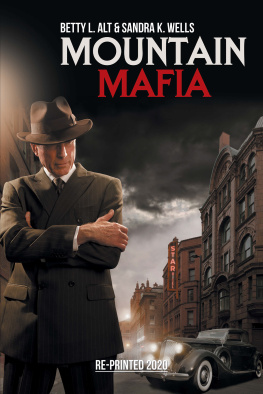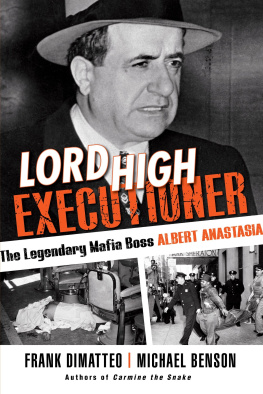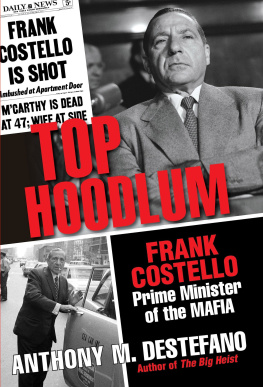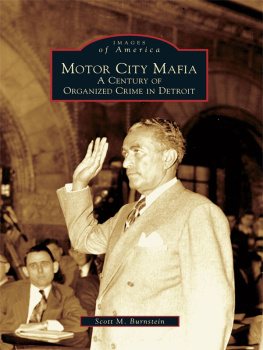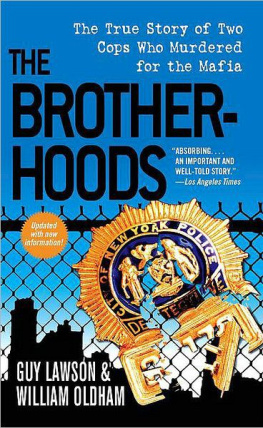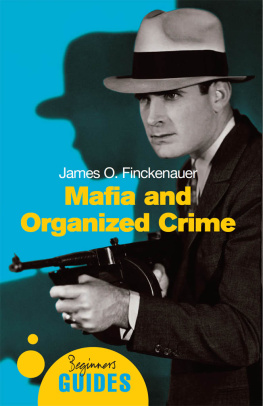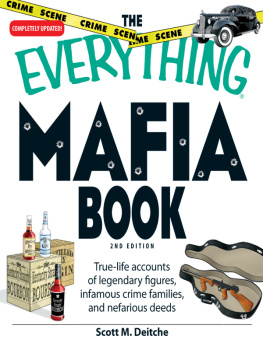A ROOKIE COP
VS.
THE WEST COAST MAFIA


Copyright 2014 by Tanya Chalupa and William G. Palmini, Jr.
All rights reserved. No portion of this book may be reproduced or transmitted in any form whatsoever, including electronic, mechanical or any information storage or retrieval system, except as may be expressly permitted in the 1976 Copyright Act or in writing from the publisher.
Requests for permission should be addressed to:
New Horizon Press
P. O. Box 669
Far Hills, NJ 07931
Tanya Chalupa and William G. Palmini, Jr.
A Rookie Cop vs. The West Coast Mafia: Breaking Up the Best in the West Gang
Cover design: Wendy Bass
Interior design: Scribe Inc.
Library of Congress Control Number: 2013947014
ISBN-13: 978-0-88282-461-1
New Horizon Press
18 17 16 15 14 1 2 3 4 5
AUTHORS NOTE
T his book is based on the authors experiences and reflects their perceptions of the past, present and future. The personalities, events, actions and conversations portrayed within this story have been taken from interviews, research, court documents, government reports, letters, personal papers, press accounts and the memories of some participants.
In an effort to safeguard the privacy of certain people, some individuals names and their identifying characteristics have been changed. Events involving the characters happened as described. Only minor details may have been altered.
All conversations with William Floyd Ettleman were transcribed from Bill Palminis personal recordings and notes.
TABLE OF CONTENTS
O n the last day of the Columbus Day weekend, the persistent ringing of the phone at 6:15 in the morning forced Detective Bill Palmini into consciousness. He reached reluctantly for the receiver, if only to silence it. Suddenly, he became aware of muscle aches, followed by a throbbing in his head and a churning in his stomach, which elicited memories of the night before when drinks flowed freely in the midst of blaring music and laughter.
George Rudimenkin was the patrol sergeant on duty that morning at the Sausalito Police Department. His tone was deadly serious. There was an armed robbery and safe burglary during the night at the Trident. Meet me there pronto. Ill fill you in on the details when you get here.
Palmini struggled to digest Rudimenkins words.
What do you mean, a safe burglary at the Trident? He raised himself up on one elbow with great effort, gripping the phone to his ear.
Bill, I need you pronto. Ill explain later; just get your ass over here quick.
Palmini heard a click on the other end before he could utter another word. This was not the easy-going George Rudimenkin he had known since their days as fraternity brothers and campus cops at San Francisco City College, several years before they both coincidentally ended up working for the Sausalito Police Department. He could not recall George ever sounding so agitated.
Palmini had no choice but to follow Rudimenkins request. There were just two detectives in the small Sausalito Police Department: Palmini and Walt Potter. Palmini was the lead investigator, and at the age of twenty-six, he was then the youngest detective in Marin County. He was also the one on call that day. With a heavy pounding in his head, he showered and dressed as rapidly as his aching body allowed. At the same time, insecurity swelled inside him, adding to his physical pain and discomfort.
A native San Franciscan, Palmini had three years of experience on the police force in Sausalito. Most of this involved regular patrol duties: responding to domestic dispute calls and residential burglaries, citing tourists and locals for minor traffic violations. Then he was moved into the detectives unit, where his most common job involved investigating violent domestic disputes and following up on fraudulent checks to merchants.
Palmini had served in the Navy for two years during the Vietnam War, most of which included duty on a nuclear submarine tender, the USS Sperry, with a short stretch in Hawaii and Oregon. It was while the crew awaited orders on Treasure Island in San Francisco Bay one afternoon that Palminis superiors noticed his skill with a baseball bat. When the USS Sperry moved to San Diego, Palmini was issued new orders to fly down to San Diego and report for duty to the sub tender. Once in San Diego, he was assigned to entertain his fellow enlisted men by playing baseball for the remainder of his stint in the Navy.
In spite of his experiences in the Navy, as a campus cop and his three years in the Sausalito Police Department, Palmini lacked confidence in his ability to meet the challenge he was about to undertake. Nickel-and-dime thieves rarely burglarized safes. Safecrackers tended to be professionals with connections to organized crime. That much Palmini knew. It bothered him that, unlike baseball, he was stepping up to the plate in a game where he did not know the rules. Self-doubt in his ability to handle a case of such magnitude was multiplying. After all, the Trident was not your run-of-the-mill place.
Why, he wondered, of all places, does it have to be the Trident? And why me?
The Kingston Trio, a popular folk and pop music group, and their manager, Frank Werber, were owners of the Trident. The groups ties to the restaurant guaranteed scrutiny by the media and promised political heat on the police department. And if that wasnt enough, there was another worry gnawing at him. It concerned his police chief, Jim Wright.
Wright had been with the Sausalito police for five years, brought in by the former police chief from the Hayward Police Department. The buzz around the department was that Wright had ambition to run for Sheriff of Marin County. He hung out with the county elite, giving some people the idea he was lining up support and future funding. Among those he entertained were top business executives and council members. Palmini and Walt Potter were frequently asked to join him when he was dining with a CEO or local business executive and encouraged to discuss the workings of the police.
There was a safe burglary that had happened almost seven months earlier in another Sausalito restaurant named Riccos. The heist attracted little notice from the press. But then again, Riccos, although a popular place, was not in the Tridents league. Ignoring the deep discomfort throughout his body, Palmini readied himself mentally to tackle the investigation by focusing on the Trident and its significance, as well as its connection to Riccos. There had to be one, but where could he start? The same thoughts kept circling in his head. He needed a path to lead him to the answers.
Palmini decided to follow George Rudimenkins instructions and head straight to the restaurant without stopping at the Sausalito Police Department first. Fortunately, the drive from his apartment in Mill Valley, with its panoramic views of lush hills and waterways, had a soothing effect. A cup of coffee he picked up at a diner and the aspirin he had popped into his mouth earlier helped soothe the hangover. Being behind the wheel of his car helped him regain his sense of control. It was his pride and joy, for it was the first new car he had ever owned. The lively music coming from the radio helped him forget the muscle pain hed been so aware of earlier.
The traffic was not heavy on Interstate 101 that morning and he soon exited the freeway onto Bridgeway Street. He passed glistening shops, art galleries and restaurants for which Sausalito is still well known. Then the street curved and there was the tall, two-story building housing the Trident, perched like a giant pelican facing the San Francisco skyline across the bay.
Next page


